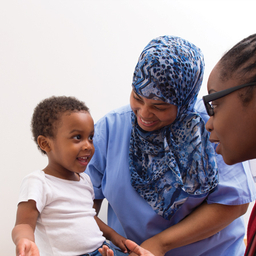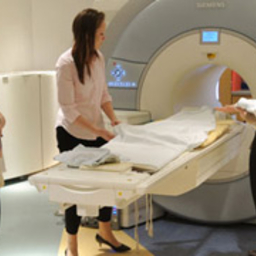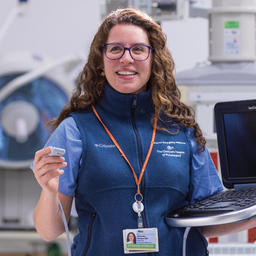Search the Newsroom
Filter By
Showing 2661 - 2670 of 3019 results

Open Book, Open World
The Reach Out and Read program at Children’s Hospital of Philadelphia marked two major milestones: It celebrated its 20th anniversary and gave away its one-millionth book.

What about Whooping Cough?
The whooping cough vaccine dramatically reduced the number of death each year; however, whooping cough has had a resurgence. Dr. Feemster explains why.

A Team Effort
A recent $1 million donation from the Eagles Charitable Foundation will support autism research and programs at Children's Hospital of Philadelphia.

A Night Aglow
The CHOP Choir and a crowd of 200 gathered in December to celebrate the Season of Light, a community-wide fundraiser and show of support for the children at CHOP.

Measurements in Baby’s First Year May Point to Autism Risk
A new study shows that early brain development biomarkers may make it possible to predict in the first year of life whether some infants will develop autism.

Making a World of Difference
Using a portable ultrasound machine, Dr. Alexandra Vinograd diagnosed telescoping intestines in a 4-month-old girl in Liberia. A surgery helped save the baby's life.

No Gift More Precious
Read heartwarming transplant stories and the astonishing transformation transplant patients undergo.

Boldly Moving Forward
The Center for Pediatric IBD and the Wyss/Campbell Center for Thoracic Insufficiency Syndrome (TIS) are crossing new frontiers of medicine — and finding solutions for conditions that once were puzzles.
Reducing Albuterol Use in Children with Bronchiolitis
Bronchiolitis is often treated with albuterol, but studies show that this is no longer effective. CHOP implemented an initiative to reduce albuterol use.
Spreading Holiday Cheer
During the recent holidays, many of our dedicated staff helped bring the joy of the season to our patients and families.